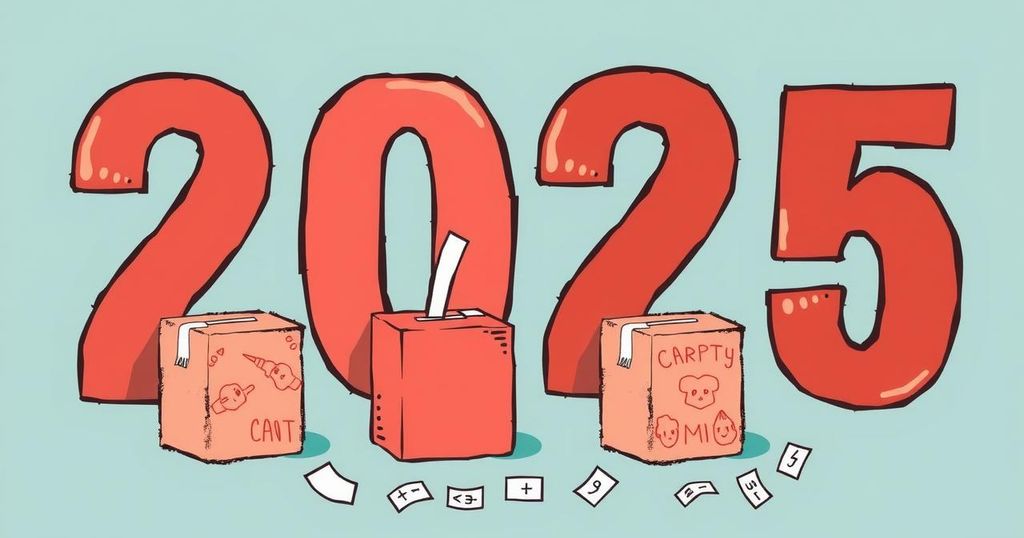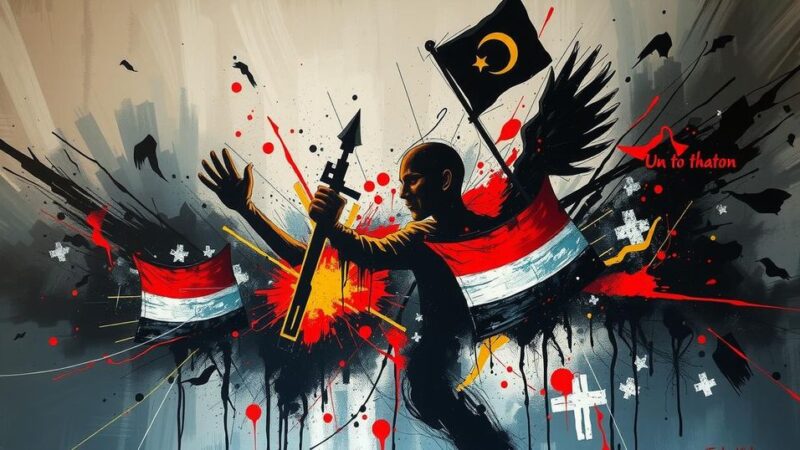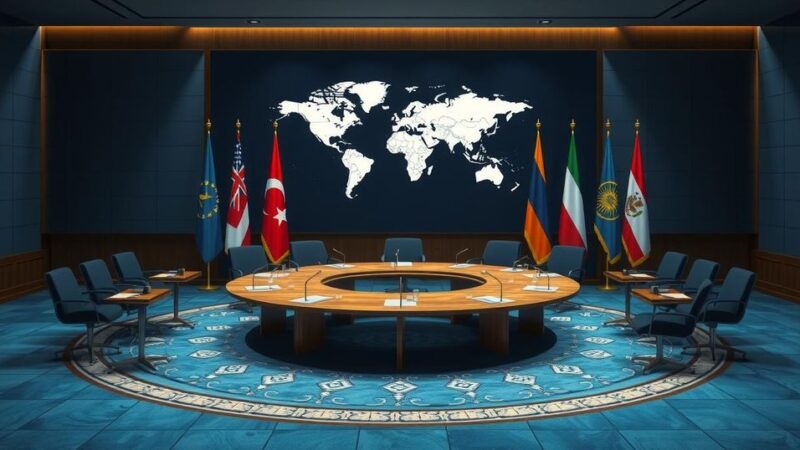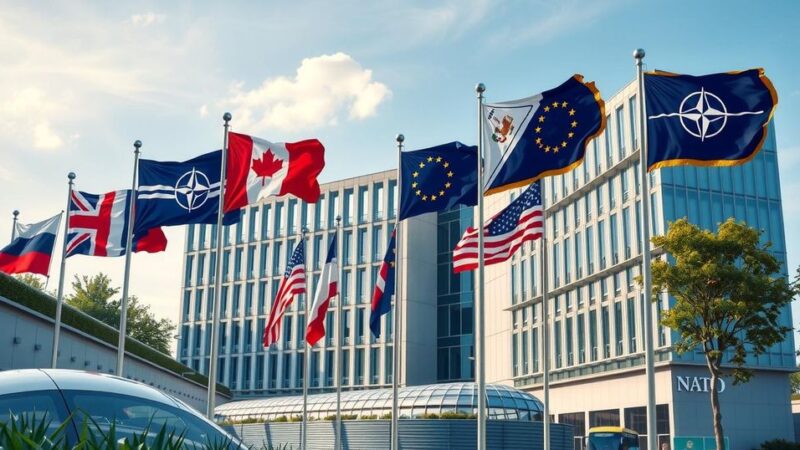The year 2025 is projected to be turbulent for elections, as various countries experience conflict and insecurity. Following a “super-year of elections” in 2024, many nations are struggling to prepare effectively for polls amid political violence and dissent. Establishing security, addressing infrastructural needs, and obtaining international support are pivotal for conducting credible elections in such challenging environments.
The year 2025 is anticipated to be fraught with electoral challenges following a notable “super-year of elections” wherein over 800 million individuals participated in national-level polls across approximately 80 countries. Many nations preparing for elections in 2025 are experiencing significant turmoil due to conflicts, political violence, and insecurity. Elections in such contexts can either legitimize new authorities or exacerbate existing grievances, necessitating international intervention to foster stability and credibility in processes.
Currently, over 70 countries are poised for elections, though many face substantial hurdles. For instance, Libya, Mali, and Burkina Faso have not seen electoral processes since 2014, while Belarus is marred by political repression during its upcoming presidential elections. In nations like Bolivia, fragmentation within ruling parties heightens instability ahead of elections, while criminal groups in Ecuador and Honduras threaten voter security.
To create a conducive environment for credible elections amid such challenges, critical strategies must be employed. This includes ensuring adequate security for participants, promoting necessary legal reforms to eliminate repression, and enhancing pluralism in media coverage. It is essential that political parties connect with the electorate, addressing real issues faced by citizens instead of engaging in self-serving conflicts. Many nations also need to fortify their cybersecurity measures against malicious actors that could undermine electoral integrity.
Reconstructing essential election infrastructure, especially in post-conflict scenarios, is paramount. Countries like Haiti must deal with the repercussions of natural disasters and violence to successfully conduct elections. Additionally, the loss of human capital due to crises complicates the training of election personnel, creating obstacles to conducting inclusive electoral processes.
The urgency of addressing these foundational issues in unstable regions cannot be overstated; delays can be misconstrued as power grabs, increasing tensions around elections. External support from the international community is vital in these contexts, as recent studies indicate that international assistance correlates with the democratic resilience of nations.
It is imperative for the global community to exhibit leadership and support nations confronting obstacles to free electoral processes, aiming to ensure that elections are not only fair but truly reflective of voters’ intentions. The groundwork for credible elections must begin immediately, even amidst the ongoing challenges that these nations face.
The article discusses the anticipated electoral challenges in 2025 following an extensive year of elections, termed a “super-year” with significant voter turnout worldwide. It highlights the various conflicts and political instabilities that could jeopardize the electoral processes in numerous countries. The role of international assistance in stabilizing these environments and fostering credible electoral practices is emphasized along with the need for concrete strategies to address security, infrastructure, and human capital issues in tumultuous contexts.
In conclusion, the upcoming elections in 2025 present a complex landscape marked by instability and conflict across numerous countries. The significance of establishing security measures, promoting media pluralism, and addressing infrastructural challenges cannot be underestimated. Furthermore, timely international assistance remains critical to ensuring that electoral processes are credible and reflective of the citizens’ will. Addressing these challenges without delay is crucial for fostering democratic resilience and facilitating legitimate governance in these nations.
Original Source: www.ifes.org






